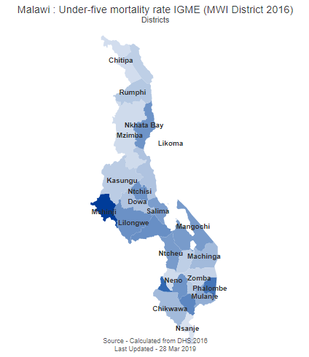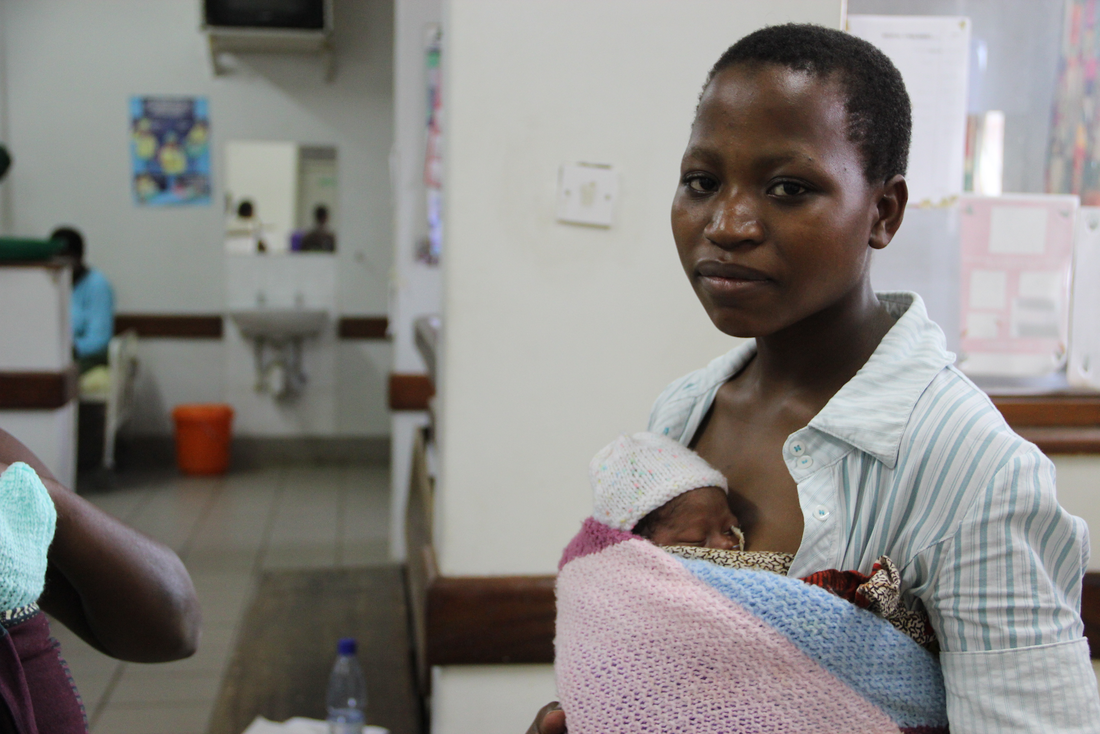|
Sumer Drall, Intern, Community Systems Foundation Shahrouh Sharif, Advisor-Data Analytics and Health Systems Strengthening, Community Systems Foundation Maternal and infant care in Malawi. By LindsayMgbor/DFID - UK Department for International Development - Make mums matter, CC BY 2.0,  From 16-17 May, 2019, the Ministry of Health Department of Planning and Policy Development (MoH DPPD), with support from UNICEF HQ, organized a Bottleneck Analysis and Root-cause Analysis Workshop in Lilongwe, Malawi. The workshop focused on an analysis of the Global Financing Facility (GFF) investment case in Malawi (1). To identify and address gaps in health service delivery, GFF provided Malawi with a $US 10 million grant to develop a Reproductive, Maternal, Newborn, Child, Adolescent Health and Nutrition (RMNCAH-N) investment case. The investment case aims to identify a prioritized set of investments required to achieve a sizable cost-effective impact. While Malawi has made significant progress in improving the health and wellbeing of maternal, newborn, child and adolescent age groups, issues and inequity still remain in health service delivery. Inequity persists in health service delivery, including: only 23% of health centers having a qualified midwife in 2015; large gaps in the availability of EmONC facilities by district; weak or unavailable infrastructure and centralization of blood donor services; high HIV prevalence; food insecurity remains high; and nutrition-related disorders account for 35% of all deaths in under-fives; unmet need for family planning remains high; among other issues. (2) Key local stakeholders, including: District Health Officers (DHOs), District Environmental Health Officers and District Medical Officers, among others, representing each district in Malawi participated in the workshop. As the bottleneck analysis progressed, the usage of the Equitable Impact Sensitive Tool (EQUIST) in the bottleneck analysis process was also discussed. Over the course of the training, participants broke into focal groups in order to identify and suggest strategies/solutions to address challenges with health service delivery. The workshop concluded with presentations of findings and a feedback session with participants. Presentations specifically provided contextual solutions to bottlenecks in health delivery services. Next Steps Following the workshop, facilitators from DPPD, World Bank UNICEF NYHQ, and CSF consolidated district-level and national outputs and prepared them for evaluation and editing. A follow-up workshop was held on 20-21 May 2019 at the World Bank and UNICEF offices in Lilongwe to review proposed underlying causes of bottlenecks and strategies. These outputs, along with a proposed list of organizations tasked to help with costing of the proposed activities, were further presented by DPPD to the GFF Task Force for their validation and inclusion into the draft investment case. Prior to and following the workshop, discussions were held regarding the different ways EQUIST could be used to address the challenges faced in health delivery in Malawi. It was proposed that EQUIST could be used to develop a zonal level analysis which would include modeled deaths averted for newborns, mothers, and under-fives by in order to supplement the investment case provided by GFF. DPPD is currently drafting the investment case, incorporating district and national level workshop participant outputs from the bottleneck analysis. The investment case will serve to provide guidance on allocation of funding and suggested impactful and cost effective interventions to implement in country to reach target coverage rates. The draft investment case will be presented to the GFF Task Force in July 2019 for their inputs and approval. Malawi’s health context provides a suitable environment for EQUIST’s platform tools of data dissemination and strategic health planning to not only be utilized in order to identify and tackle bottlenecks but also to complement existing efforts in the region. 1. GFF is a financing mechanism that supports country led efforts to avert maternal, newborn, child, and adolescent preventable deaths and improve the health and quality of life of women, children and adolescents.
2. DPPS, Ministry of Health (FY2018/19)
0 Comments
Leave a Reply. |
Join the CSF data revolution webinar tomorrow!
COMMUNITY SYSTEMS FOUNDATION – EST 1963
+1 212 500 1335
data-driven sustainable development

